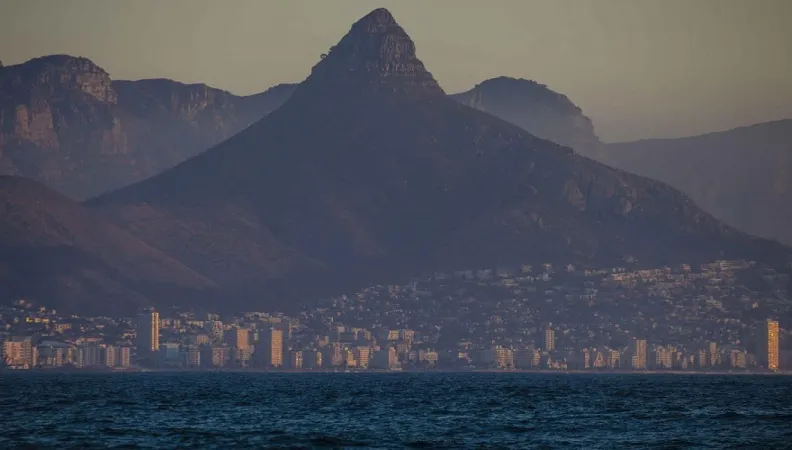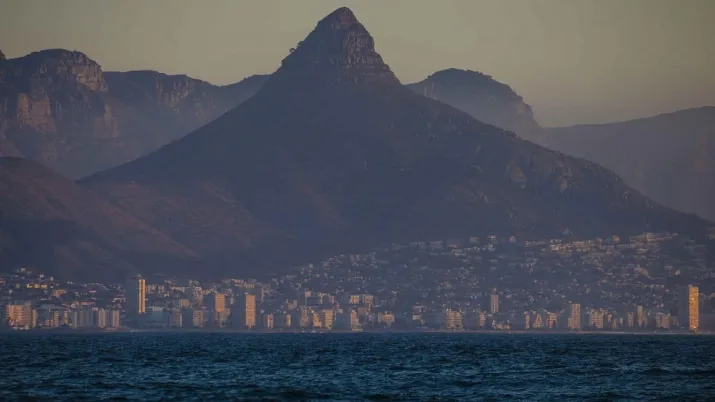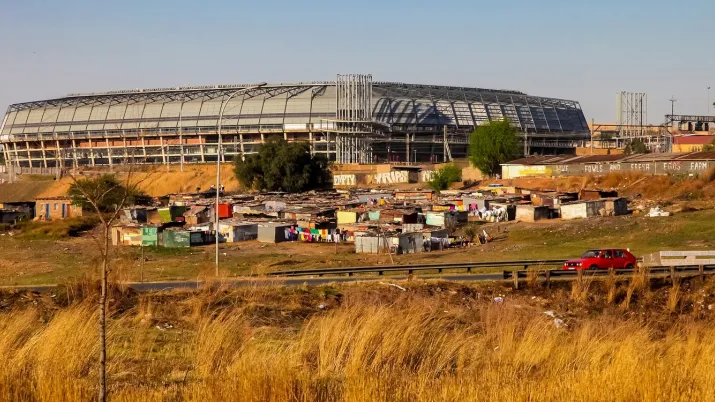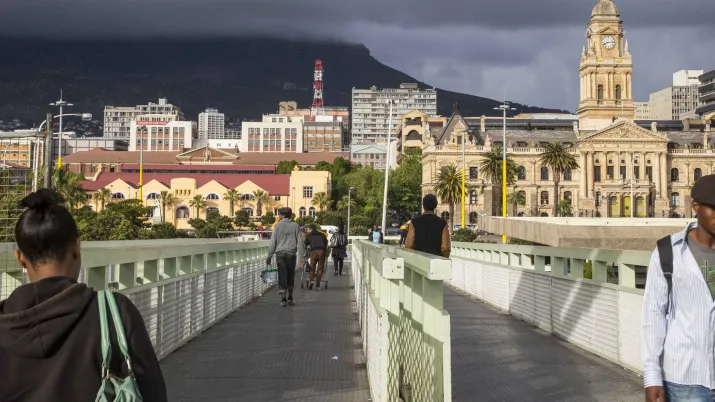Share the page
Cape Town and AFD: an exemplary partnership for sustainable coastal resilience
Published on

As part of the UN Ocean Conference (UNOC), the Deputy Mayor of Cape Town, Eddie Andrews, explains the concrete progress made through the long-term partnership between his city and AFD (Agence Française de Développement) to tackle rising sea levels. This is also an opportunity for him to discuss his participation, on Saturday, June 7, 2025, in the Ocean Rise and Coastal Resilience Coalition summit, organized by the French city of Nice and the Ocean & Climate Platform, alongside leaders of other major coastal cities and island nations threatened by rising sea levels.
What motivated Cape Town to join the Ocean Rise and Coastal Resilience Coalition? What do you expect from this partnership?
Eddie Andrews: We are experiencing sea level rise at nearly twice the global average. This directly threatens our coastal infrastructure, which supports around 10% of our GDP. We can no longer afford to continue as before. Joining this coalition allows us to learn from other cities around the world, share our own experiences and solutions, and engage in valuable technical discussions. It is crucial for cities in the Global South, like ours, to have a seat at the table. We expect tangible support: technical assistance, peer-to-peer exchanges, and greater visibility for our local actions. Success will be measured by our ability to adapt our policies, secure appropriate financing, and show that our initiatives produce measurable positive outcomes.
Read also: Tackling Inequality and Climate Change Simultaneously in South Africa
Given the context, Cape Town has an active role to play in this coalition. We want to share the lessons learned from our own experience in coastal risk management. It’s also about representing the voices of African cities facing specific challenges and enriching the coalition’s collective goals with our on-the-ground knowledge.
What projects or initiatives are currently in place to align with the coalition’s work?
E.A. One of our biggest challenges is in adapting our internal working culture. We need to improve coordination between municipal departments and work more closely with private landowners. We also need to address the physical disappearance of our beaches, which are not only impacted by erosion and rising sea levels but also face additional pressures due to overly rigid infrastructure.
Read also: Biodiversity: What are "Nature-based Solutions"?
To tackle these growing challenges, we have established a Coastal Management department, equipped with expertise in engineering, climate, marine sciences, and regulation. We’re using high-resolution risk maps, developing nature-based solutions – such as dune rehabilitation – and have revised our coastal regulations. These actions fully align with the coalition's goals and could serve as a model for other cities.
How would you describe the long-term partnership between AFD and Cape Town? How has this collaboration contributed to climate action and reducing inequalities?
E.A. Since 2012, our partnership with AFD has been exemplary. With their technical support and concessional loans, we have been able to strengthen our water management strategy after the “Day Zero” crisis, assess our climate vulnerabilities and, now, develop coastal adaptation plans.
Read also: AFD Group and the Ocean
This collaboration has allowed us to really act on coastal adaptation while also reducing social inequalities. AFD has also provided technical expertise that we could not find locally. Their tools include technical support for vulnerability assessments and concessional funding for climate infrastructure projects, particularly in water and coastal areas. This helps us accelerate the implementation of concrete projects that strengthen our resilience to climate change.
How do you plan to involve local communities and stakeholders in coastal resilience efforts, and what role will they play in decision-making?
E.A. We have a very engaged civil society. We’ve set up community forums, on coastal erosion for example, which bring together citizens, civil servants, government representatives, and private sector stakeholders. These open and often dynamic discussions allow us to adjust our policies based on real needs, and to develop a model of co-governance.
What are the current challenges faced by Cape Town in accessing climate finance, and what type of additional support do you need?
E.A. To access climate finance, we need mature projects with a robust economic model, which takes time and resources that are often limited. Additionally, the division of responsibilities between government levels can sometimes complicate matters. We therefore need support through grants or concessional loans to build and accelerate impactful projects. We are also seeking support to foster our dialogue with the insurance sector and develop blended financing solutions.
Further reading
Cape Town and AFD: an exemplary partnership for sustainable coastal resilience
Published on june 6 2025



